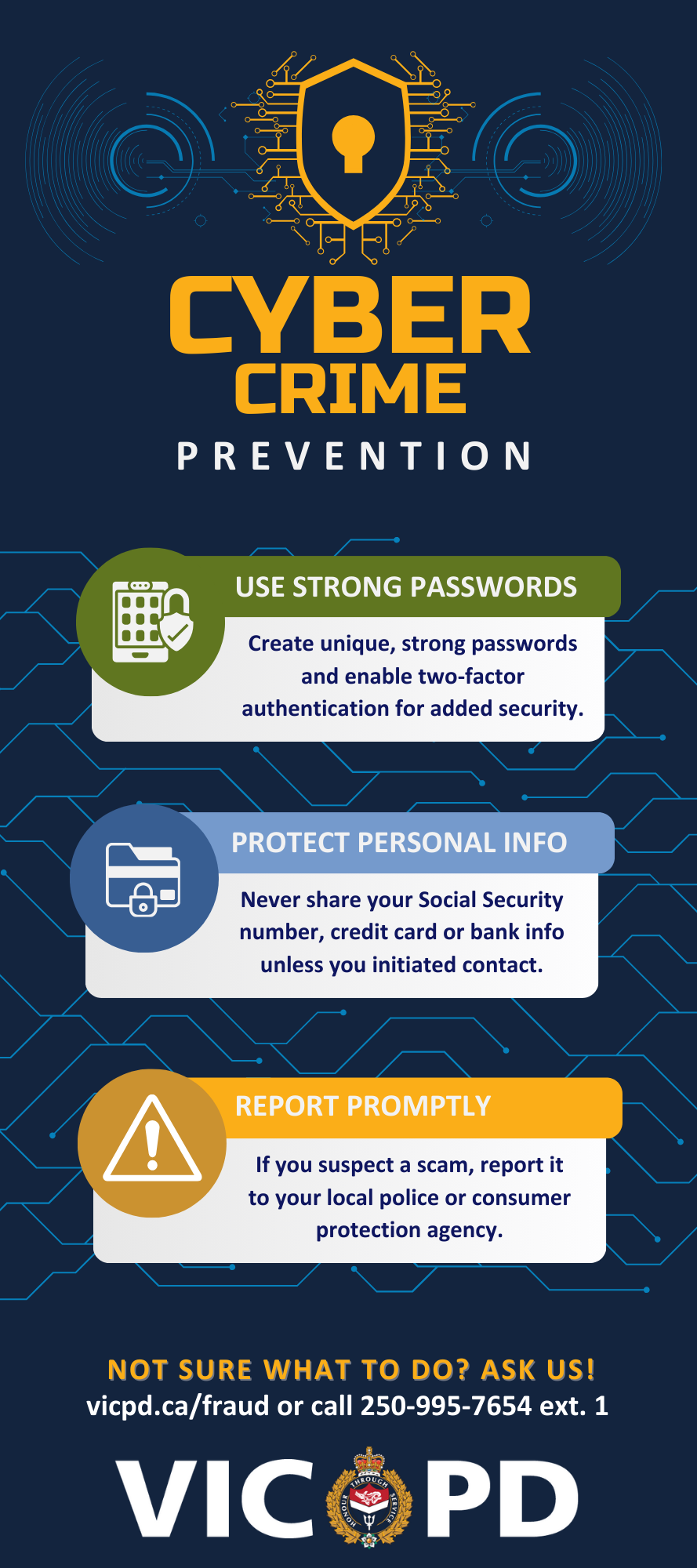Cybercrime
In today's digital age, staying connected is easier than ever—but so are the risks. Cybercriminals are constantly finding new ways to exploit personal information and infiltrate systems. Our goal is to help you recognize these threats and take proactive steps to protect yourself and your data.
What is Cybercrime?
Cybercrime involves illegal activities conducted via the internet or computer networks. This includes a wide range of offenses, such as:
- Phishing Scams: Fraudulent attempts to obtain sensitive information by disguising as a trustworthy entity.
- Ransomware Attacks: Malicious software that locks your files or systems until a ransom is paid.
- Identity Theft: Stealing personal information to commit fraud or other crimes.
- Online Fraud: Schemes that deceive individuals into providing financial or personal information.
How to Protect Yourself
- Be Skeptical: Always question unsolicited emails, messages, or phone calls asking for personal or financial information. Verify the source before taking any action.
- Use Strong, Unique Passwords: Create complex passwords that combine letters, numbers, and symbols. Avoid using the same password across multiple sites.
- Enable Two-Factor Authentication: Add an extra layer of security by requiring a second form of verification, such as a text message or authentication app, to access your accounts.
- Update Regularly: Keep your software, operating systems, and applications up to date to protect against vulnerabilities.
- Secure Your Devices: Use antivirus software, firewalls, and other security tools to safeguard your devices from malware and other threats.
- Be Cautious on Public Wi-Fi: Avoid conducting sensitive transactions or accessing important accounts on unsecured networks.
What to Do if You're a Victim of a Cybercrime
Many people don't report it when they discover they've been a victim of fraud. Often, it is because they feel ashamed; they feel as though they should have known better. There is no shame in falling victim to a fraud. Fraudsters are experts at manipulating the best parts of people to for their own personal gain. The Victoria Police Department has established a specialized Cyber Crime Unit focused on tackling crimes conducted online. We encourage you to report any fraud or cybercrime incidents to help us enhance our fight against these offenses.
If you suspect you've been targeted by cybercriminals or if your personal information has been compromised, take immediate action:
- Report the Incident: contact the EComm non-emergency line at 250-995-7654 extension 1.
- Change Your Passwords: Update passwords for any affected accounts and consider using a password manager to keep track of them.
- Monitor Your Accounts: Regularly check your financial statements and credit reports for any unauthorized transactions or activities.
- Alert Your Financial Institutions: Notify your bank or credit card company about the potential fraud to secure your accounts and prevent further losses.
Stay Informed and Stay Safe
Cybercrime is constantly evolving, but with vigilance and the right precautions, you can protect yourself and your information. For more tips and resources on staying safe online, download our cybercrime prevention infographic here or visit vicpd.ca/fraud.
More Fraud Resources
BC Securities Commission (Investment Fraud)
http://investright.org/investor_protection.aspx
National Investment Fraud Vulnerability Reports


